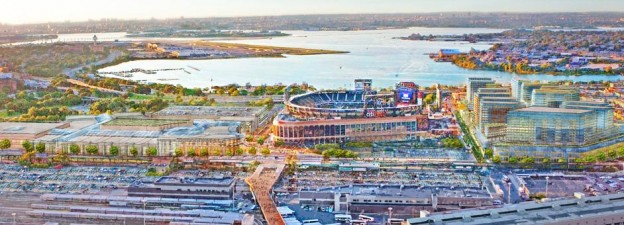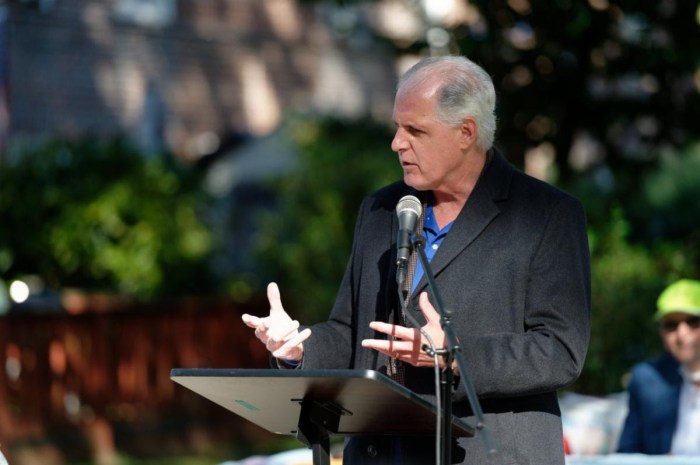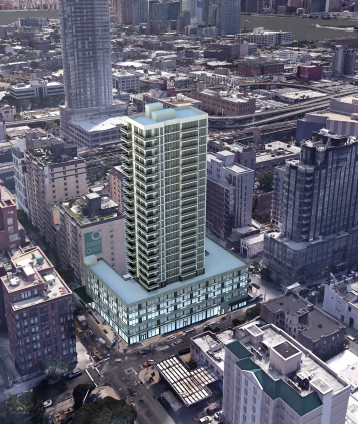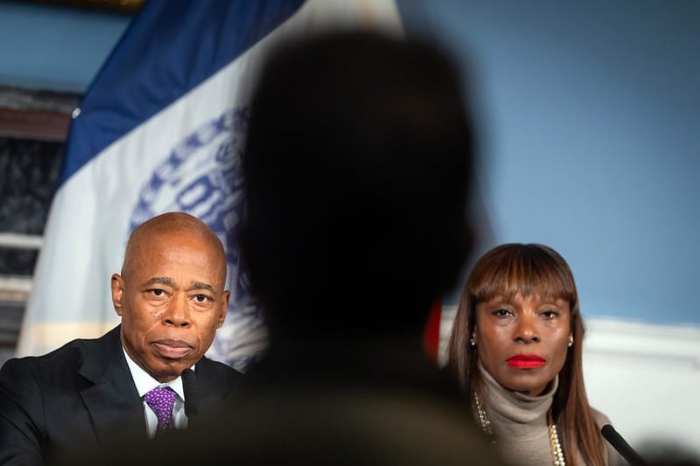Updated Friday, Aug. 21, 9:43 a.m.
Plans for the redevelopment of Willets Point took another hit Wednesday, this time from the City of New York.
The de Blasio administration announced it would not participate in an appeal of a State Appellate Court’s decision blocking the construction of Willets West, a million-square-foot mall on the Citi Field parking lot where Shea Stadium once stood. The court declared that the parking lot is city parkland, and that the parties involved did not reach an agreement to replace parkland lost in connection with the project, violating a state mandate.
The withdrawal came after failed negotiations between the city and the project’s main developers — Queens Development Group (QDG), which includes Related Companies and Sterling Equities — over plans to speed up the creation of affordable housing within the larger redevelopment plans for Willets Point. That demand, according to a source familiar with the negotiations, was not viewed by the developers as being economically feasible.
It also marks a stark reversal for the city, which previously supported the mall’s creation under then-Mayor Michael Bloomberg. The city has thus far spent more than $400 million in purchasing land in Willets Point to make way for the neighborhood’s transformation from an industrial hub to a commercial and residential community.
The source, however, claimed the city’s decision was not a matter of philosophical differences between administrations, noting that the city apparently attempted to leverage the impending appeal into the expedited creation of affordable housing at Willets Point.
“They threw out the baby with the bathwater,” the source said, adding that the city was calling upon the developers to “take a leap of faith” and make a commitment to affordable housing at Willets Point without offering secure economic means to get the job done.
Deputy Mayor Alicia Glen, in an official statement, acknowledged that the city desires “significant improvements that would mean that the public would also see a healthy mix of affordable and market-rate housing, delivered on a real time frame.”
“Nearly half a billion dollars is an enormous public investment to make when the only guarantee is a shopping mall. The deal as it stood did not require any affordable housing actually be built,” Glen said. “We know a lot has gone into this project, and we hope that this team will continue to work towards that goal with us.”
Nevertheless, Queens Development Group is pressing on with its efforts to overturn the Appellate Court’s decision on Willets West and the redevelopment of the area as a whole, according to spokesman Phil Singer.
“We are committed to the redevelopment of Willets Point and are confident that our appeal of the Appellate Court’s ruling will be successful,” Singer said in a statement. “The QDG plan, which was overwhelmingly approved by the City Council, provides an additional $3 billion private investment which will finally clean up the long-contaminated land at Willets and provide the facilities and infrastructure for a brand-new neighborhood.”
Regarding the city’s push for affordable housing, Singer indicated the QDG supports the de Blasio administration’s efforts and is “committed to significantly accelerating the housing portion of this plan.”
“But those efforts need to be backed by a financially viable model,” he cautioned.
Opponents of the Willets West plan hailed the city’s withdrawal from the appeal effort.
“I am pleased to hear that the city administration has decided not to appeal the Appellate Division’s unanimous and well-reasoned decision,” said state Senator Tony Avella in a statement. He charged that the developers, by continuing the appeal, “have refused to see the fundamental flaws in the Bloomberg plan in all its variations.”

The Willets Point saga has gone on for nearly a decade. Back in 2007, the city put forth a multibillion-dollar vision of turning industrial Willets Point into a neighborhood featuring more than 5,000 new apartments, many of which were to be reserved as affordable housing. Businesses in the area, however, banded together in an effort to thwart the city’s acquisition plans; many of them eventually settled and agreed to relocate to the Bronx.
Before putting a shovel in the ground, the city is also required to remediate decades of pollution left by industry there and develop basic infrastructure such as sewer and water lines. Completion of the redevelopment is currently projected for 2026.
Meanwhile, in 2012, the city and Sterling Equities — which owns the New York Mets and Citi Field — announced plans for Willets West, including a large mall, a movie theater complex and a 200-room hotel. Opponents of Willets West filed suit, pointing out that the former Shea Stadium site where the mall is to be built is part of Flushing Meadows Corona Park — a claim that the Queens Supreme Court dismissed in 2014 but the State Appellate Court accepted this year.



































